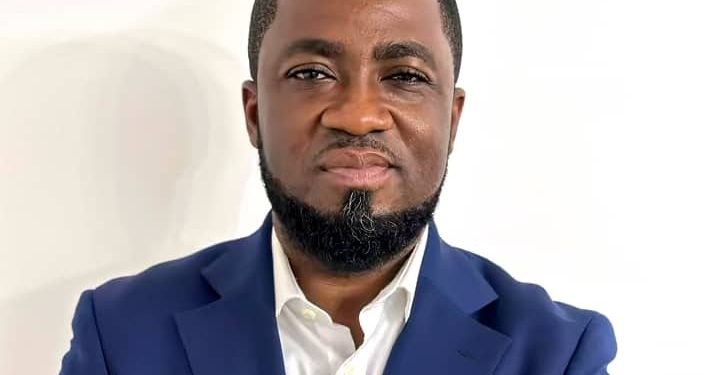In a move set to strengthen bilateral ties and boost sustainable development, China and Sierra Leone have reaffirmed their commitment to deeper cooperation in the fisheries sector. This development took place this week in Beijing during the second session of the China-Sierra Leone Joint Fisheries Committee (JFC) meeting.
The high-level meeting was co-chaired by China’s Vice Minister of Agriculture and Rural Affairs, Zhang Zhili, and Sierra Leone’s Minister of Fisheries and Marine Resources, Mrs Princess Dugba. The two sides signed the official meeting minutes, marking another step forward in a partnership that both countries describe as longstanding and mutually beneficial.
“Our two nations share a deep and enduring friendship,” Vice Minister Zhang said during the session. “Fisheries cooperation between China and Sierra Leone not only contributes to economic and social development but also plays a vital role in enhancing food security and improving the lives of our people”, he added
Zhang emphasized China’s commitment to working with Sierra Leone on key areas such as resource conservation, full industry-chain development, and technical support. He noted that China is ready to intensify a practical approach grounded in mutual benefit to drive progress in the sector.
Minister Princess Dugba, for her part, praised the achievements already made under the bilateral fisheries framework. “The cooperation between our countries has been both effective and impactful,” she stated. “We look forward to China’s continued support in advancing Sierra Leone’s fisheries and aquaculture sectors.”
The talks included wide-ranging discussions on issues such as distant-water fishing, aquaculture development, and scientific research. Both parties agreed to jointly pursue a resilient framework for stable partnership , promote scientific conservation, and ensure the sustainable use of marine resources.
The two sides also outlined plans to conduct fisheries resource surveys using up to date innovative and adaptable methods. The agreement includes commitments to collaborate on policy planning, technical exchanges, and capacity-building programs — all aimed at strengthening aquaculture in both nations.
Since 2018, Sierra Leone and China have significantly deepened their bilateral relations through various agreements and high-level visits, notably including HE President Julius Maada Bio’s state visits to China.
During his visit in March, 2024, President Bio met with Chinese President Xi Jinping, resulting in a joint statement on comprehensive strategic cooperative partnership between the two nations. This statement emphasised mutual support on core interests, enhancement of trade and investment cooperation, and collaboration in various sectors of development.
Mrs. Dugba’s meeting with the Chinese Vice Minister builds on the foundation laid in earlier engagements when China and Sierra Leone signed a Memorandum of Understanding on Fisheries Cooperation. An agreement that established the Joint Fisheries Committee (JFC) as a mechanism to oversee and evaluate ongoing collaboration in the sector.
As both countries move forward with renewed purpose, the latest joint session signals a shared vision for sustainable fisheries management and long-term development — one rooted in trust, shared expertise, and a commitment to improving the well-being of the people.
The African Master’s Degree Obsession–Education Without Direction
Let me start with my own credentials—I hold two master’s degrees in Law, both earned in the UK. The second one was funded by a £10,000 student loan, not because I couldn’t pay for it myself (I covered my first degree and first master’s out of pocket), but because a friend convinced me to leverage debt smartly and invest my cash instead. That decision paid off.
I didn’t need those two master’s degrees to practise law. I pursued them purely out of intellectual curiosity—and because I could afford to. But what baffles me is the growing trend among Africans, particularly those back home, who are obsessed with acquiring master’s degrees they neither need nor can afford.
The Unemployed Master’s Candidate Phenomenon
Almost weekly, I get messages from Facebook “friends” and distant relatives in Africa asking me to fund their master’s degrees. But when you dig deeper, here’s what you find:
- They’ve never worked a single day after their first degree.
- They have no clear career plan—just a vague belief that a master’s will magically open doors.
- They can’t afford the degree themselves, yet they’re pressuring others to foot the bill.
If you haven’t secured a job with your bachelor’s degree, what exactly is the master’s for? More unemployment with extra letters behind your name?
The Western vs. African Education Mindset
In the UK/US, people typically:
- Work first, then pursue a master’s if it aligns with their career.
- Pay for it themselves (or take loans they intend to repay).
- Target degrees that actually increase earning potential (MBAs, STEM, etc.).
In Africa? It’s become:
- Degree stacking without experience.
- Begging for funding instead of earning it.
- Pursuing random master’s programs with zero ROI.
When a Master’s Makes Sense (And When It Doesn’t)
Makes sense: You’ve worked, identified a skills gap, and are pursuing a specialized degree (e.g., Finance → MBA).
Doesn’t make sense: You’re unemployed, studying “International Relations” with no diplomatic ambitions, and expecting strangers to pay for it.
Education is an investment, not a trophy. If you can’t monetize your first degree, adding another won’t fix that. Worse, if you’re begging for tuition, you’re not just unemployable—you’re financially illiterate.
So to all the “Master’s or nothing” crowd: Get a job first. Save money. Then upgrade—if it actually matters. Otherwise, you’re just decorating your CV while your bank account stays empty.
A master’s degree won’t compensate for a lack of hustle. And nobody owes you funding for your academic tourism.
Is there something I am missing here?
–Chris-Vincent Agyapong










